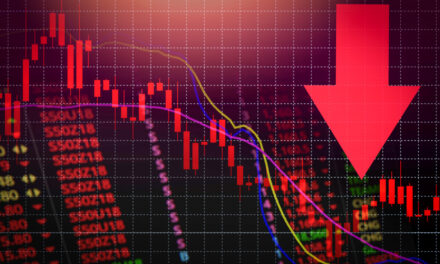Gold prices swung more than 1% on Friday, sliding from a seven-year high as investors sold the precious metal to cover margin calls as the rapid spread of the coronavirus hammered equity markets.
Spot gold was up 0.1% at $1,671.24 per ounce by 1:58 p.m. EST. U.S. gold futures settled 0.3% higher $1,672.40. Gold jumped 1.2% to its highest since January 2013 at $1,689.65 earlier in the session, but then shed all those gains to drop as much as 1.4%.
“We are seeing a lot of volatility in the equity markets, fairly large losses and uncertainty bringing the S&P below 3,000. We are most likely seeing liquidation of gold in order to cover margin calls,” said Bart Melek, head of commodity strategies at TD Securities. “This is very reminiscent of what happened in the corrections during the financial crisis.”
U.S. stocks tanked and the Dow Jones Industrials all had shed more than 3% by 3:30 p.m. EST, while government bonds rallied as traders worried about a prolonged economic slowdown. Oil prices also collapsed more than 8% to their lowest levels since mid-2017.
“This dip (in gold) should be bought up fairly quickly as the day goes on. As long as this virus is in the headlines out there, expect gold to continue higher,” said Bob Haberkorn, senior market strategist at RJO Futures.
Despite the losses, safe-haven gold is still on course for its biggest weekly gain since February 2016. Nearly 60 new coronavirus cases were confirmed in the United States on Thursday. Globally, virus cases surpassed 100,000 and over 3,300 deaths have been reported.
The International Monetary Fund on Wednesday said the outbreak would hold 2020 global output gains to the slowest pace since the 2008-2009 financial crisis.
The epidemic poses “evolving risks” to the U.S. economy and central bank officials are monitoring developments closely, New York Federal Reserve President John Williams said on Thursday. The Federal Reserve made an emergency 50-basis-point interest rate cut on Tuesday, its first inter-meeting cut since 2008.
Lower interest rates reduce the opportunity cost of holding non-yielding bullion. U.S. nonfarm payrolls data showed a robust increase in hiring in February, but the report may not reflect the full impact from the outbreak.
Palladium dipped 0.5% to $2,520.92 per ounce and silver was down 0.9% at $17.26 an ounce. Platinum rose 3.1% to $891.08, on track to post its best week since mid-Janaury. The second-largest platinum group metals producer, Anglo American Platinum , had slashed its output outlook due to a shutdown following an explosion.




